|
Self-care is often portrayed through the lens of soothing activities like bubble baths, scented candles, or spa days. While these can be delightful ways to unwind, true self-care goes beyond the surface and involves intentional practices that nurture your mental health, even when they might seem challenging. Here are ten examples of self-care that require courage, honesty, and resilience.  Facing Fear through Expression: Self-care means speaking your mind, even when fear tries to silence you. Confronting your anxieties by expressing your thoughts and feelings can be a powerful act of self-love. Setting Boundaries: Learning to say no and establishing healthy boundaries is a form of self-care that protects your mental well-being. It involves prioritizing your needs and respecting your limits, even if it means disappointing others. Seeking Professional Help: Acknowledging the need for therapy or counseling is an important aspect of self-care. Taking that step to seek professional help demonstrates a commitment to your mental health and personal growth. Forgiving Yourself: Self-compassion is a challenging yet crucial form of self-care. Forgiving yourself for past mistakes and embracing imperfections allows you to move forward with a lighter heart and a clearer mind. Confronting Toxic Relationships: Letting go of toxic relationships, whether they be friendships or family ties, is a bold act of self-preservation. It may be difficult, but it creates space for healthier connections to flourish. 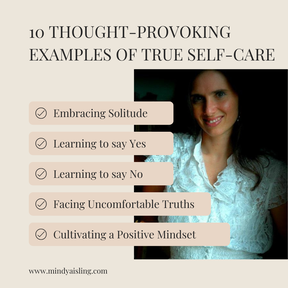 Embracing Solitude: Spending time alone, without distractions, can be a powerful form of self-reflection and self-discovery. Embracing solitude allows you to connect with your inner self and recharge your mental batteries. Learning to Say Yes: On the flip side, self-care involves stepping out of your comfort zone and saying yes to opportunities that align with your values and desires. It's about embracing growth and new experiences. Learning to Say No: Mastering the art of saying no is a fundamental form of self-care. Recognizing your limits and having the courage to decline commitments that overwhelm you is crucial for maintaining mental well-being. It involves prioritizing your needs and ensuring that your energy is directed toward what truly matters to you. Facing Uncomfortable Truths: Self-awareness is a cornerstone of self-care. Confronting uncomfortable truths about yourself, your actions, or your past can be challenging but is essential for personal growth and healing. Cultivating a Positive Mindset: Shifting towards a positive mindset requires conscious effort. Practicing gratitude, reframing negative thoughts, and focusing on the present moment contribute to a more optimistic and resilient mental state. While bubble baths and pampering sessions have their place, real self-care involves confronting the difficult aspects of life head-on. By incorporating these challenging practices into your routine, you foster a deeper, more resilient connection with yourself and enhance your overall mental health. First time FREE no-obligation session, click here!
0 Comments
In the relentless flow of life, we often find ourselves caught up in a whirlwind of activities, responsibilities, and commitments. Days turn into weeks, weeks into months, and months into years, all while we carry the weight of our past and the burden of our unexamined present. It's easy to forget that to move forward authentically and achieve our goals, we must pause, reflect, and let go of whatever no longer serves us. This month, as I engage with the SHED coursework alongside my clients, I am embrace the liberating practice of letting go. One of my core beliefs are that we are all always growing and learning, we are all teachers and students. Therefore, in my courses, I work alongside my clients. I am both guide and student. This September, here are the three things I'm releasing from my life with the help of the SHED coursework. 1. My addiction to doing 2. Weight 3. My (unhelpful) inner-narrative about a past situation My addiction to doingLetting go of my addiction to doing is going to allow me to build a more balanced and healthy life. Not only does our society glorify busyness and place a premium on productivity, but I am still healing a poverty wound from my childhood (you can read my story here), so I have found myself addicted to constantly doing in an attempt to stay safe, secure and respected. Mentally, I understand that "doing" is not the best tool to use to create safety and respect in my life, but there are 3 ways to "know" something, and I need to pull my knowing from a level 2 (emotional) to a level 3 (modus operandi). Additionally, because I am so incredibly passionate about my work, I can easily find my neurodivergent brain hyper focusing on it for long hours. While this brings me a ton of joy, I recognize that in order to be the person I want to be, my life (and my focus) has to be more multidimensional and balanced. Letting go of this addiction will require a shift in mindset and a commitment to prioritize my mental and emotional well-being. It involves time and dedication to meditation, reflection, and journaling as I investigate my values and needs in order to discover the "key" to realigning my internal "story". My updated story will allow me to embrace moments of stillness, self-care, and relaxation as just as important as accomplishing tasks. This shift will allow me to increase my self-awareness, improve my mental health, and achieve greater overall happiness. If you struggle with over-doing, I invite you to join me in SHEDing this addiction. When we let go of the addiction to doing, we create space for reflection, creativity, and self-discovery. We allow ourselves to reconnect with our passions, values, and the things that truly matter to us. It's an opportunity to cultivate a more mindful and purposeful life where we savor each moment rather than rushing through them. Ultimately, the journey to release this addiction can lead us to a more authentic and fulfilling existence where we find contentment in simply being ourselves, free from the constant need to prove our worth through ceaseless activity. WeightLetting go of excess weight on our bodies is a journey that extends beyond just shedding physical pounds; it's about reclaiming our health, self-confidence, and overall well-being. Carrying excess weight can take a toll on both our physical and emotional health, but the process of shedding it can be a transformative and empowering experience. For me, as I go into middle age (I'm 44), and I manage health issues (brain tumor) and medication for those health issues (that cause weight gain), I find myself trying to lose weight for the first time in my life. This is a new journey for me, and one that I'm excited about. For me, it's not just about aesthetics but primarily about my health. I like to feel like my body is an asset to me in my choices. To the greatest extent possible, I want to be able to do whatever I want to do and not be limited by my body's capabilities (fitness and health). For me, it is about taking control of my life and making choices that promote longevity and vitality. It's about freeing myself from the physical limitations that extra weight can impose and giving myself the opportunity to live a life filled with energy and vitality. As an NFPT Personal Trainer and Health Coach, I know that the journey to letting go of excess weight involves adopting sustainable lifestyle changes rather than quick fixes. I am focusing on cultivating healthier habits that I can maintain over time. I'm also doing experiments to discover exactly how my body responds to different foods so that I can optimize my diet. The process of shedding excess weight also requires a shift in mindset. While this can include fostering self-compassion and embracing a positive self-image, for me it is primarily about my priorities and allowing diet and exercise to take up more of my time and energy every single day. If you're interested in following my journey on this topic, stay tuned as I work through the SHED curriculum throughout the rest of September! My Story (about people not liking me)The annual SHED course begins by assessing where you are "leaking" energy, where you feel constricted, and where you encounter sadness, stress or other heavy vibration feelings in your life. When I did my examination, I realized that there was a past situation in my life where I was holding on to a story that was not serving me. In fact, it was causing quite a leak in my energy field. Because I've done this work for over a decade, this is not the first time that I've had to let go of a similar story. For me, it comes up sometimes and, gratefully, I have the tools to know how to manage it in my life and return to my most wild and free self. Often, we construct narratives in our minds that are not necessarily grounded in reality, and these stories can have a detrimental impact on our self-esteem and relationships. The story that people don't like us/respect us/value us is a common one, and can stem from various sources, including past experiences, insecurities, or misinterpretations of social cues. However, it's crucial to remember that our perception isn't always an accurate reflection of how others truly feel about us. People's thoughts and feelings are complex, and their thoughts, beliefs and behaviors (including their opinions about us) ultimately describe them, not us. While it is easy to mentally understand this, living it is much more challenging. If you are looking to change your story regarding how people think about you, you have two options. You can "check out reality" with the person and discover their actual thoughts and feelings - or you can change the story that you are telling yourself about the person and/or situation. I am going to be doing the latter one, changing my story. If you're interested in changing your story about a particular person or situation, download my DIY Coaching Course, The Stories We Tell Ourselves for a step-by-step guide to changing your stories. I'll also be posting another blog next week showing my personal step-by-step process in changing my story on this particular situation. Letting go of what no longer serves us is not a one-time event but an ongoing journey. It's an act of self-compassion and a commitment to living authentically. Authentic living is about aligning our actions, choices, and beliefs with our true selves. It's the key to achieving our goals, finding genuine happiness, and experiencing lasting peace. When we let go of old habits, toxic relationships, and the fear of failure, we create space for the authentic self to flourish. We become more in tune with our desires, values, and passions. This alignment empowers us to set meaningful goals and pursue them with unwavering dedication. Authenticity becomes a guiding principle, leading us towards a life that resonates with our innermost aspirations. Taking time every year to review our lives and let go of what no longer serves us is a profound act of self-love and self-discovery. It is the authentic living path, a journey towards becoming our truest selves. As we shed the weight of old habits, toxic relationships, and fear, we make room for our authentic selves to shine through. With authenticity as our compass, we can navigate the twists and turns of life, achieve our goals, and experience unparalleled joy and peace. So, this month, I invite you to join me in letting go and embracing the authentic life that awaits us. Choosing Your Energy PathThe energy we choose to live our lives from has a profound impact on our experiences, relationships, and overall well-being. We possess the power to navigate life's challenges and joys by embracing either positive or negative energy. In this article, we will explore the two streams of energy available to us and delve into the transformative effects of living a life rooted in positivity. Understanding Positive EnergyPositive energy is a state of mind characterized by optimism, gratitude, and a hopeful outlook on life. It involves focusing on the present moment, embracing personal growth, and seeking opportunities for joy and fulfillment. Living from a place of positive energy empowers us to approach challenges as opportunities for growth, maintain healthy relationships, and radiate kindness and compassion towards others. The Power of Positive EnergyEmbracing positive energy opens the door to a myriad of benefits. It enhances mental and emotional well-being, boosts resilience in the face of adversity, and promotes a sense of purpose and fulfillment. Positive energy also attracts like-minded individuals and opportunities, fostering a supportive and uplifting environment that propels us towards our goals and aspirations. Identifying Negative EnergyNegative energy, on the other hand, is characterized by pessimism, fear, and a sense of hopelessness. It often manifests as self-doubt, resentment, and a tendency to focus on past failures or future anxieties. Living from a place of negative energy drains our vitality, hampers personal growth, and strains relationships with ourselves and others. Breaking Free from Negative EnergyBreaking free from negative energy requires conscious effort and self-reflection. Start by recognizing negative thought patterns and their impact on your emotions and behavior. Challenge self-limiting beliefs and replace them with empowering affirmations. Surround yourself with positive influences, engage in activities that uplift your spirit, and practice self-care to nurture a positive mindset. Cultivating Positive EnergyCultivating positive energy is a lifelong journey that requires daily practice. Begin by cultivating gratitude, focusing on the blessings and positive aspects of your life. Practice mindfulness to anchor yourself in the present moment and foster a deep appreciation for the beauty around you. Engage in acts of kindness and generosity, as they not only uplift others but also elevate your own spirit. Choosing Positive Energy in RelationshipsEmbracing positive energy extends beyond our individual lives and into our relationships. Surround yourself with people who radiate positivity and support your growth. Cultivate empathy, active listening, and open communication to build strong, healthy connections. Be mindful of your words and actions, ensuring they reflect kindness, understanding, and respect. The Ripple Effect of Positive EnergyLiving a life rooted in positive energy has a ripple effect that extends far beyond ourselves. Our positive energy influences those around us, creating a ripple of inspiration and positivity. By embodying positivity, we have the power to uplift others, create harmonious communities, and contribute to a more compassionate and loving world. The energy we choose to live our lives from shapes our experiences and impacts those around us. By consciously embracing positive energy, we unlock the potential for personal growth, enhanced well-being, and fulfilling relationships. Let us navigate life's journey by choosing positivity, spreading kindness, and uplifting others. Embrace the transformative power of positive energy and watch as it enriches every aspect of your life.
Letting Go of People in Your PastOne of my favorite quotes is, "You are the average of the five people you spend the most time with." by Jim Rohn. I love this quote because it speaks to the influence that other people have on us. This process of taking on the vibration, characteristics, thoughts and beliefs of others happens mostly unconsciously. The fact is that by our very nature, we, as humans, exchange the very essence of our substances when we are in relationship with each other. This is why it is imperative that we take great care with who you allow into our lives. Healthy people understand the need to create boundaries in order to express their truest, most authentic selves. Relationships are often characterized by layers of boundaries. As you become the healthiest, most healed version of yourself, it is normal to continue to update your boundaries & the rules for what behaviors you allow in your life. It is natural to outgrow people and situations. Creating new "higher standards" for who you allow into your life is a sign that the investments you've been making in your personal growth are paying off. (*Please note that having high standards for how people are allowed to interact with you allows you to increase the intimacy and vulnerability you have with others. With healthy boundaries you can actually be more authentic and present with other people in your life. I mention this because sometimes people get confused between having high standards and pushing people away to avoid emotional intimacy. That's something different, and not what I'm recommending.)
In a similar way, I adjust the rules for what behaviors I allow in each circle in response to the impact that circle has on my life. For example, in my Core Circle and Inner Circle, I absolutely don't accept dishonesty. Period. If you are repeatedly dishonest with me, then you move out to a distant circle. If you are allowed to influence me and the decisions that I make regarding my one precious life, then (hell, yes!) I require specific standards of behavior from you. That is how much I care about myself and the life that I'm creating. Now, let's talk about that furthest outside circle, the 'Restricted' circle. This is for people who treat us in a way that creates harm or requires us to self abandon. For example, if someone repeatedly uses gaslighting behavior with me, or if someone has harmed me or a loved one and refuses to take accountability for that harm, that person is not allowed in my life. Unfortunately, this can sometimes be someone close to us. For me, this is my mom. That sucks, but in order to love myself and honor the life that I have worked hard to create, it is necessary. As a highly sensitive person, empath, and introvert, building boundaries has been one of the most challenging areas of personal growth and development for me. I am a naturally compassionate person who feels everyTHING and everyONE, and for many years it felt unempathetic and unloving to have boundaries. As I healed and grew in my personal growth journey, I realized that the most loving thing that I can do for myself and others is define my edges with firm boundaries. If you identify and highly sensitive or empathetic, learning to establish healthy boundaries is especially important because of the high impact that other people have on you. Even people who have been a core part of your past, aren't necessarily part of your destiny. One of the most powerful acts of self love in your life is building boundaries and regulating the impact that others have on you. Bad days are inevitable. They can be caused by stress, exhaustion, or simply having a run of unfortunate luck. No matter the cause, it's important to remember that you can take steps to turn your day around and regain a positive outlook. Here are a few tips to help you do just that. Take Time For Yourself When you're having a bad day, it's important to take some time out of your schedule to focus on yourself and what you need in that moment. This could mean taking a break from your work, going for a walk outside, or even just curling up on the couch with your favorite movie or TV show. Taking some time away to give yourself some space will help ease any anxieties and allow you to shift your perspective on the situation. Talk To A Friend It's always helpful to talk through whatever is bothering you with someone else. Talking about how we are feeling can often help us process our emotions and gain clarity on the situation at hand. If you don't want to talk about it in person, there are also plenty of online support systems available if needed. Reaching out for help doesn't make us weak; instead it shows our strength in recognizing when we need additional support in order to move forward more positively. Focus On The Positives It can be easy to get bogged down in all the negative aspects of our lives when things aren’t going as well as we'd hoped they would. However, it’s incredibly important not to let those negative thoughts take over! Make sure that when things seem tough, you take the time focus on all the positives present in your life - no matter how small they may seem! Doing this will not only help put things into perspective but will also provide much-needed motivation and strength while tackling difficult tasks throughout the day. Bad days happen - but they don’t have to last forever! It’s okay if things don’t go as planned or if something unexpected happens; take comfort in knowing that there are ways for us to turn around our days no matter what curveballs life throws at us! Remember these tips next time you’re having a bad day so that you can start regaining control over situations and get back into an optimistic mindset once again! Over the past few weeks, many of my clients have requested more information on support and resources for ADHD and Autism. I've compiled a list of notes and recommendations below. If you have any questions, please don't hesitate to reach out to me ([email protected]). This is a long blog, so feel free to skip to the header of the topics that you're interested in. MedicationMedication is a tool that about 70-90% of people with ADHD benefit from. ADHD medication helps people to focus, sustain attention, reduce hyperactivity, and reduce impulsivity, but may not always help with organization, procrastination, and time management challenges. People with ADHD often find that one medication works for them better than others, even within the same class of medication. Even trying short vs. long term medication can make a big difference, so work with your doctor to find the right fit for you. Some people with ADHD find that medication doesn't work well for them at all. This happens sometimes and it does not mean that the person doesn't have ADHD. PsychotherapySome psychotherapists specialize in helping people develop and implement strategies for managing ADHD as well as help them reframe some of the negative messaging they may have received about their ADHD (for example: that they're lazy or unmotivated). In Bend, Oregon: CoachingCoaching can often be an effective tool to help break down tasks and goals into manageable, actionable steps and then hold the client accountable for the actions they want to take. Coaching can also provide the necessary structure for managing weekly tasks, and furnish an understanding listener during the times when frustration arises. (You can schedule a free consultation with me here) Behavioral Support & Strategy (ADHD)Exercise helps to reduce ADHD symptoms. It is important to distinguish between exercise for fitness and exercise for focus. Fitness usually involves a more intense period of exercise, while exercising for helping focus with ADHD can be 5 - 10 minutes of activity. It is best to work with your brain, rather than against it. This means that when you are having rouble focusing, it is better to just take a break than to force yourself to continue to try. Alternatively, if you are in a hyper-focus mode, it's okay to skip breaks as long as you plan a longer period of rest and recovery when the hyper-focus is complete. People with ADHD benefit from being able to control the level of stimulation in their environment. This could mean being able to have a quiet, distraction-free space when you need it - or noise when you need it. This might mean wearing headphones or ear plugs in certain environments - or on different occasions. Changing environments can also be really helpful. Moving from your desk to the couch or from your office to a coffee shop can have a positive impact. People with ADHD often have the experience where if something is out of sight it is out of mind. This means that they tend to do better when they place important items (like planners and pillboxes) where they will regularly see it. It is very common for people with ADHD to get interested in a lot of different hobbies. The downside of this is that it can be expensive. Often local 'buy nothing' or 'trade' groups work great for people with ADHD. People with ADHD find it useful to create a 'launch pad'. This is a place where all of your important things go before you leave the house. Keys, wallet, mail that needs to be mailed, canvas grocery bags - anything you need to complete out of the home tasks. Calendars can be hard to manage, but they can also be helpful. Calendars are most helpful when there is a place to offload the "to do" items and other things that need to get done, and when necessary transition and recovery time are scheduled into the day. For example, you might have a meeting from 10am - 11am, but might also need to schedule from 11am - 11:30am to recover and refocus. Often people with ADHD can 'gloss over' details of their day. For example, if you need to be somewhere at 10am, you need to leave the house at 9:45, which means you have to start getting ready to leave the house at 9:30 (or earlier). When you schedule all of these tiny parts of your day into your planner, you have less of a tendency to overcommit, be late, or end the day being exhausted and overwhelmed. This is especially true for someone who is gifted with both ADHD and Autism. One strategy for helping people stay on task is called "body doubling" which means having a supportive and nonjudgmental person work with you to provide you with reminders when needed. (See below for free online body doubling support) Reframing Differences (ADHD)People with ADHD often have trouble consistently using and applying strategies that involve many of the self-regulation skills they struggle with. For some people medication helps, for others, environmental changes help - the key is finding your unique recipe and then having compassion for the ebb and flow of its use. Some people with ADHD will get down on themselves for not "finishing" things, like housework or hobbies. It's important and helpful to reflect on what it means to be "finished". Often we think of being finished as having some kind of final product or mastery, but that's a very narrow definition that doesn't serve people well. It is entirely reasonable (and wise) to acknowledge that some tasks and activities are so challenging that they are not worth the effort. For example, some people with ADHD will hire housekeepers, or accept that their house will never be as tidy as the 'expected' or the 'norm'. It can be important & healthy to set limits on actives with friends and family. It can be really challenging to reframe traits associated with ADHD and Autism as not a personal failing. You are okay just the way you are, and it is even okay to struggle in accepting that statement. Websites (ADHD & Autism)
Books (ADHD & Autism)Apps (ADHD & Autism)Podcasts (ADHD & Autism)Social Media (ADHD & Autism)
Facebook Groups: MeetUp Groups (Online/Remote) Reframing Differences (Autism)Many people have stereotypes in their minds about how an Autistic person looks and behaves. They might say things like, "You don't look Autistic" or "You make eye contact so you can't be Autistic" or "Maybe you're Autistic, but it must not be that bad because you're able to work." These kinds of comments are incorrect and based on outdated ideas. Many Autistic people engage in repetitive behaviors known as "stimming." These behaviors are an important means of self-regulation and therefore shouldn't be reduced, eliminated, or altered (unless they are harmful). Many Autistic people (particularly undiagnosed/late diagnosed) channeled this into nail biting, cheek biting, fidgeting, or holding their hands in fists. Consistent routines and repetitiveness in general help to establish a level of predictability in a social world that feels very unpredictable. Such routines also shouldn't be reduced, eliminated are altered (unless they are harmful). Autistic people tend to have more focused and intense interests than neurotypical people. Research suggests that engaging in these interests is positively associated with wellbeing and helps Autistic people develop emotional awareness, social skills, and coping skills. Accordingly, they are encouraged to pursue these interests, even if other people find them "too intense". There is nothing wrong with needing support for tasks that other people can do without support. Our culture is highly individualistic, but other cultures highly value interdependence and relying on each other. What level of help is "socially acceptable" is highly arbitrary and varies based on cultural standards. Managing the Sensory EnvironmentAutistic people have a harder time filtering out distracting sensory information. Accordingly, they often benefit from tools like noise-canceling headphones, ear plugs, and other devices to help the regulate their sensory experience. For example, playing loud music through headphones while grocery shopping to help drown out some of the other overwhelming sounds might be beneficial. Other tools that may be helpful are weighted blanket, weighted clothes or sensory toys. Because the sensory environment is so important, it is important to be thoughtful about your physical space. The may mean keeping sensory and self-care tools nearby, reducing clutter, dimming lights, using rugs or insulation to reduce noice, and having help keeping the space that way. It is perfectly reasonable to be thoughtful and discerning about clothing. There is nothing wrong with dressing in a way that allows you to be comfortable. Reducing the decision around clothing can also be very helpful. For example, if you find clothes that feel comfortable, purchasing multiples of those clothes and wearing them constantly is totally reasonable. Social Engagement (Autism)One thing Autistic people are taught by society is that they should endure discomfort for the comfort of others. For example, they should make eye contact even though it makes them uncomfortable. This makes it mush more challenging for Autistic people to know when they're feeling discomfort (as they have been taught to ignore and discard it) and set boundaries that they are actually comfortable with. Learning to monitor discomfort, set boundaries and conceive their own boundaries as acceptable is an import goal for Autistic people. Many Autistic people benefit from preparing for new situations by researching them ahead of time and getting a very explicit and clear understanding of expectations. For example, if you're going to a new restaurant, it is often helpful to look at the restaurant's website, seeing how the outside of the building looks on Google Street View, reviewing the menu, and knowing ahead of time where the bathrooms are. Autistic people often need more scripting and pre-planning for social events than neurotypical people. This means that they benefit form more time to prepare for events, which is a normal and reasonable thing. Autistic people tend to do better with digital communication than real time communication as this allows them to take the time they need to process information. I hope this was helpful. If you have questions, thoughts, or things to add to this blog, post a comment below or email me ([email protected]) We all have moments of resistance in our lives. Whether it’s resistance to change, resistance to new ideas, or just resistance to taking action, these moments can hold us back and prevent us from achieving our goals.
While resistance is a natural part of life, it’s important to remember that we always have a choice in how we respond to it. We can either let the resistance control us, or we can choose to let go of it and move forward. When we choose to let go of resistance, we open ourselves up to new possibilities and new opportunities for joy. Here are three reasons why letting go of resistance is key to finding more joy in life Finish reading this article on Medium Wikipedia defines Slow Living as "a lifestyle which encourages a slower approach to aspects of everyday life." I define Slow Living as: Intentionally behaving in a way that calms my nervous system, aligns my values with my actions, and cultivates everyday joy in my life. I define it as a rebellious revolution against hustle culture. I define it as necessary. I define it as survival.
None of this feels good. This unseen, but heavily felt, pressure is a sign of an impaired nervous system. Unchecked, this can lead to severe illness. It's time to take action now, and it is why I define slow living as a conscious choice to survive. As individuals, we must reclaim our wellness and collectively, as a society, we will see certain destruction if we don't. We are living in a world that is not built to support us in our wellness, and we must actively change this by collectively doing less - our humanity depends on it. Dr. Jenelle Kim says that "Slow living is a conscious approach to life that involves living slower so you can appreciate each moment and prioritize what matters in life," This way of living is, of course, far removed from what society has normalized. The belief that we must work hard to be rewarded has become ingrained in us. Slow living challenges us to contemplate life (and our intrinsic value) differently and allows us to experience ourselves, and the world around us, more fully. Slow living is choosing our wellness, and our happiness over anything (and everything) else.
The benefits of slow living are clear, so the next question is, how do you start? When you're deep in the hustle, running on the hamster wheel at full speed, it is challenging to see a path out. I've been there, I get it. Here are a few things you can do to lay the bricks of the path that will become your exit strategy. The first step is acknowledging that you want something different in your life and believing that it is possible for you. You don't have to know how it's going to happen, you just need to make the decision in your heart and mind that something is going to be different, you are going to change the rules and take back your wellness and your joy. This is a great time to talk with your partner, kids, or friends about your decision. Building a support system to help you transition into a new chapter of your life is extremely valuable. However, it is good to remember that the people you share your decision with might have a negative reaction - that's okay, that is just the fear playing out inside of them. That doesn't mean it is the wrong decision on your part. Have patience, have compassion, and stay the course. The second step is beginning to create a little bit of breathing room for yourself. Start with 5 minutes if that is all you can find. Allow yourself to sit quietly for 5 minutes. Stare at the ceiling, listen to a song, listen to a 5-minute meditation, or practice deep breathing. I highly recommend setting a timer so that you can fully relax for the full 5 minutes that you've committed to giving yourself. This is self-love. This is self-care. This is the first step towards what you want. Another small way to begin to reclaim your time, energy, and wellness is to unplug. When you unplug regularly and don't accept the distractions our modern tech brings, you open yourself up to increased peace, and new possibilities & experiences. When you unplug, you can be present in the world around you. This simple act is incredibly healing. Finally, embrace mindfulness as your lifeline. Mindfulness is being fully present in your experience. Mindfulness, when utilized in all its power, can turn cleaning the cat box into a ritual of love and purpose - but we don't have to start there. Start with your cup of coffee or tea in the morning and make it a relaxing touchstone in your day. Measure carefully, pour slowly, inhale the aroma before each sip. If the rest of your day is busy, doing this one thing slowly will have a ripple effect, creating a bit more peace and stillness in your day. If you're interested in slow living and the art of intentionally living your life on purpose - join me on this journey by subscribing to my newsletter here. "The average attention span for the notoriously ill-focused goldfish is nine seconds, but according to a new study from Microsoft Corp., people now generally lose concentration after eight seconds, highlighting the affects of an increasingly digitalized lifestyle on the brain." - Time Magazine, May 2015 This quote is frightening, and I'm sure that you've felt the effects. Time seems to be speeding up, and every day can feel rushed and frenetic. The pressure is greater, and the productivity is less. So, how do you begin to reclaim your time and focus? Start here ⬇ First and foremost, you must end your slavery to your electronics. If you don't think you are addicted to your electronics - try one (or all) of these things and notice the response in your body:
How do you feel when you do these things? Do you feel compulsion raising up in your body - like you just have to look at your phone or laptop? Do you feel panic in your body - like something might be wrong and you have to check to make sure everything is still okay in the world? Do you feel 'bad', like you are required to check text/emails/messages 24/7 to be a "good employee", and "good business owner", and "good friend"? If any of these, or other feelings of resistance, obligation, or temptation, came up for you - it might be time to examine your relationship with electronics. With electronics, like in all areas of life, the goal is that YOU, the innate, wise, conscious you, is the leader. Compulsion is defined as: "an irresistible urge to behave in a certain way, especially against one's conscious wishes." Take a moment to identify the size of the gap between who you say you want to be and who you are. This gap can frequently be identified in following areas of life: exercise, food choices, electronics, self care, emotional response and communication. Every single person has a gap - this is okay. The realization that moves us forward is that we can make this gap smaller and therefore design a life that is more in alignment with our values and desires. This, in turn, results in you liking yourself more. After you gain conscious control over your relationship with electronics, you can begin to use them, instead of them using you. This means that when you have focused work that needs to be completed, you can turn off your email, social media, phone, etc. without discomfort. While you can simply turn off your electronics during focused work times and off-work times, there are also a ton of tools to help you limit your distractions during work time. Here are just a few:
For me, here is what works: Phone The focus feature on my iPhone is set up to allow just a handful of people (my husband, son, sister, and dad) through on the personal setting. In the work setting, no calls or messages are allowed through. I use the personal setting for most of the work day and the work setting for deep focus sessions and meetings. For instructions on how to set up the focus feature on your phone, click here. I then schedule time to return calls in my schedule. I close my email during meetings and deep work sessions. Then, I schedule times to check and respond to email. If you're not disciplined enough to keep your email closed, there are apps that can assist you. Personally, I love Boomerang for all of its features - including Inbox Pause. Social I have to use social to promote my business, so while I'm not a huge fan the impact that social media is having on our culture, I do engage with it - consciously. First, I use Later to schedule 90% of my content. This means that I don't have to log into all of my social platforms to post daily. I do need to log-in for social media engagement, and that is on my schedule. Schedule For me, this is key to my productivity. Creating a solid schedule for myself is my lifeline to being productive, balanced and happy in my life. For most days, my schedule looks something like this:
This schedule is flexible, but I stick to it as much as possible - because it serves me to do so. This schedule leaves me with 5 hours of solid work every day and 2.5 hours of responding to the world (email, phone, etc). It makes sure that I take care of myself by assuring that I get breaks and lunch, and allowing me to sustain healthy work/life boundaries. Your schedule can be unique to you, it is simply the act of consciously controlling your time that it important. If you're not sure where to start with creating a schedule for yourself, begin by recording what you do everyday. You can even use an up like Rescue Time which will provide you with a report about how you spend your time on your computer. Then, take a look at how your time is spent and make conscious decisions about what to change so that you align with who you really want to be and the life you really want to live. Exceptions I do want to note exceptions to my schedule. I have both (high functioning) ADHD and Autism, which means that my brain works a little bit differently. When I honor the way that my brain works, my life flourishes. My brain loves to hyper-focus on something and work on that thing for 12 hours straight. When I do this, I call it A-holing for ADHD/Autism hole. I just made this term up and thought it was funny. I swear I can get 40 hours of work done in 12 hours when I'm A-holing, and it is SO much fun. I allow myself A-holes as much as I can when they present themselves to me & I feel like most of my genius, creativity and highest-quality work comes from these times. After an A-hole, I always take as much of the next day off as possible and double up on the self-care to revive myself and get back on track. If you have natural inclinations due to the unique way that your brain/body works - lean into them. This will be far more effective than fighting them. Timer I also find that I have days when I am more distractable. Perhaps I didn't sleep well, something stressful is going on in my life, or there is a particular project I'm having a difficult time getting started. During these days it can be helpful to use a timer. I set a timer for 15 minutes, and when that timer goes off I check to make sure I'm on my schedule. This way if I 'rabbit hole', I'm only wasting 15 minutes (at most), not 4 hours. This is a great tool to reactive my consciousness, and my ability to be in conscious choice about how I spend my time. Connect with Others If you are a remote worker, there are a few really fun new platforms to connect with others, focus your time, hold yourself accountable, and create healthy work habits. My favorite is Flown. Flown provides virtual co-working sessions led by motivating facilitators - plus, meditations, breath work &. more. Yes, its great even for introverts! Check it out, and I'll see you in a Deep Dive session. The next chapter is about reclaiming your time and productivity. Yes, it will be hard. Yes, it will require discipline. Yes, you can do it (and you'll be so grateful that you did). While I am a huge fan of limiting the time you spend using electronics, there are some really cool ways that tech is being used to improve health and wellness. I have tried a ton of wellness apps - for physical, mental, emotional and spiritual wellness. Here are my 5 favorites: Insight Timer Insight Timer is a meditation app with a large selection of audio tracks to choose from, including guided meditations, music, and talks by teachers. It is easy to use with an excellent selection of content to choose from. Insight Timer can be used on your phone, plus they are a website/desktop version. Here are some of my favorite meditations:
Breathscape Breathscape generates music from your breath in real-time, creating an immersive experience that effortlessly guides you into deep states of relaxation and meditation. You place your phone on your stomach, and the app uses biofeedback to gently retrain your body to take deeper, slower breaths. Taking slow, deep, intentional breaths activates the parasympathetic “rest and digest” pathway in the brain and sends a signal to the body that it’s safe and ok to relax. This simple practice is clinically proven to relax and unwind the nervous system. Yoga-Go Yoga-Go is a great yoga app for beginners. It provides personalized, simple home-based yoga and pilates routines to meet a variety of goals. Do you want to lose some weigh, or improve your hip mobility? You can customize your workout. This app also offers Face Yoga (which I love!) My Water Drinking water sounds simple, and yet many of us are chronically dehydrated. This app helps you remember to drink water and tracks your progress. Journify Journify is an audio journal. If you're like me, and your mind is buzzing with thoughts, ideas and pop-up wisdom all the time - then this app is for you. It's great to use to capture your bright ideas - and also for quick processing/reflection on things that triggered you during your day. Journaling about your feelings can reduce mental distress and is a highly encouraged practice for people dealing with anxiety. Journify also has a mood analyzer and burnout tracker feature that monitors and breaks down your mood and mental state over time. It helps you check in on your daily sleep, energy, and motivation to know when there’s a decline or improvement in your wellbeing. |
AuthorMindy Amita AislingAuthenticity EmpowermentLife Coaching for Big-Hearted Overthinkers & Entreprenerds🐲Own Your Weird
🌎 Change Your World ⬇️ DIY Courses 👩🏻💻1:1 RemoteCoaching Fully Accredited ICF Certified Mindy Amita Aisling, is a professionally trained and board-certified leadership, authenticity, and entrepreneur coach.
Mindy exceeds all requirements set forth by the International Coaching Federation (ICF) for Master Coach certification. Mindy is also a licensed mediator, communications coach, and conflict resolution practicer. As a mediator, she has worked both in private practice and as a court appointment mediator at her local county courthouse. Through her innovative approach, she assists clients in examining their limiting beliefs, questioning their assumptions about how the world works, and releasing the notion that they are anything less than perfect. As a result, individuals who work with Mindy cultivate the ability to stand firm in their beliefs, live authentically and decisively, and discover an experience of life that is easy and graceful. In 2021, Mindy founded How to Be Human and Entreprenerd. These programs have enabled her to share her wisdom and knowledge with a broader audience in service of her vision of helping others live authentic lives This, in turn, has empowered more individuals to lead their most TRUE and COURAGEOUS lives. When she is not working, Mindy can be found playing outdoors in the beautiful Pacific Northwest, creating art, spending time with friends & family, or with her nose deep in a book. You can sign up for her newsletter here. Archives
June 2024
Categories
All
ICF Certified Life CoachAffordable Online Life Coaching |




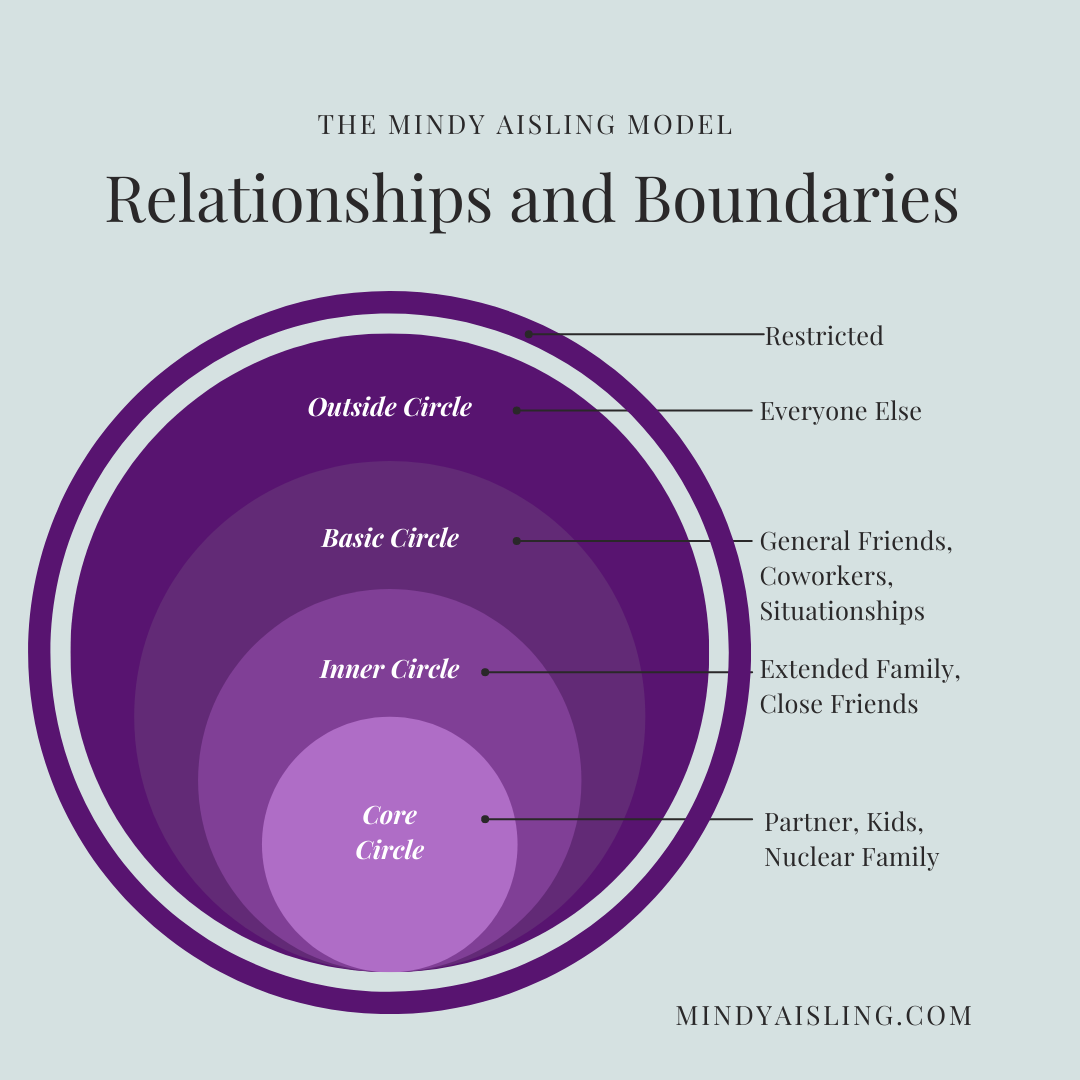



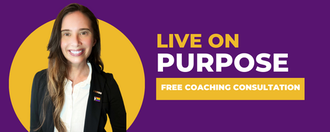


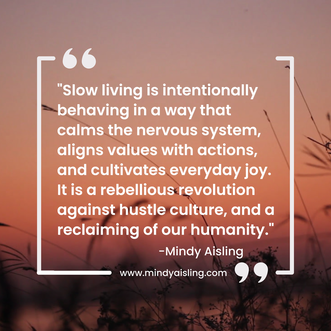
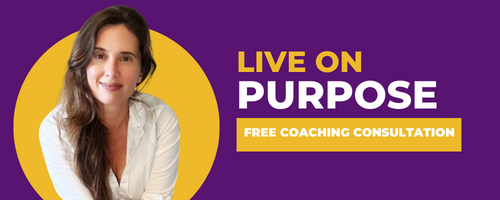

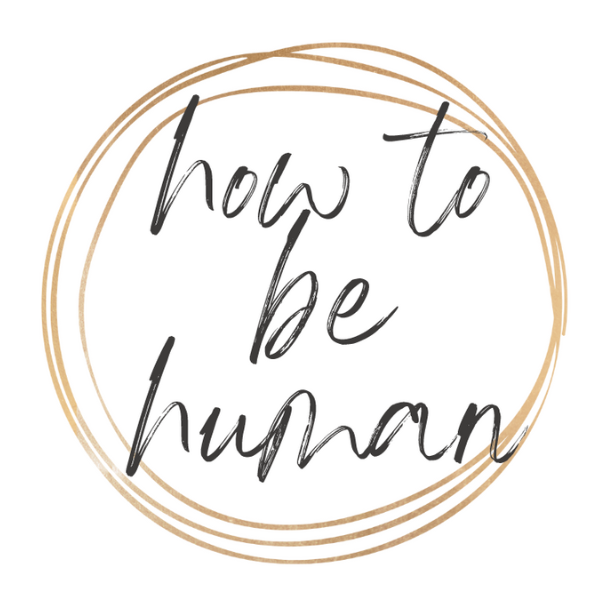
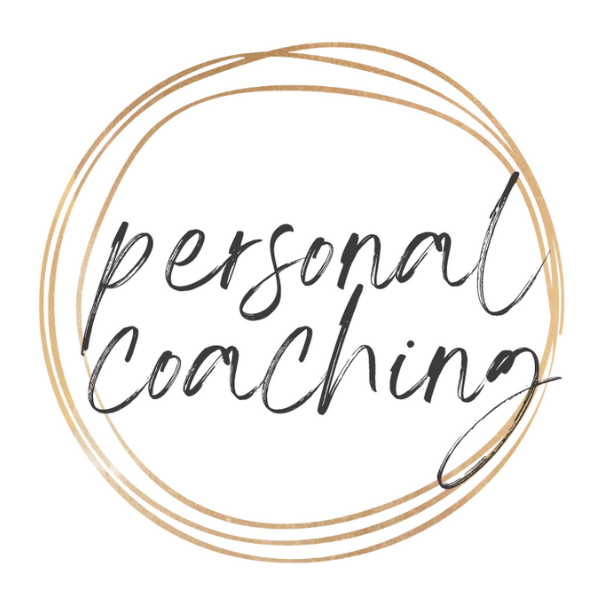
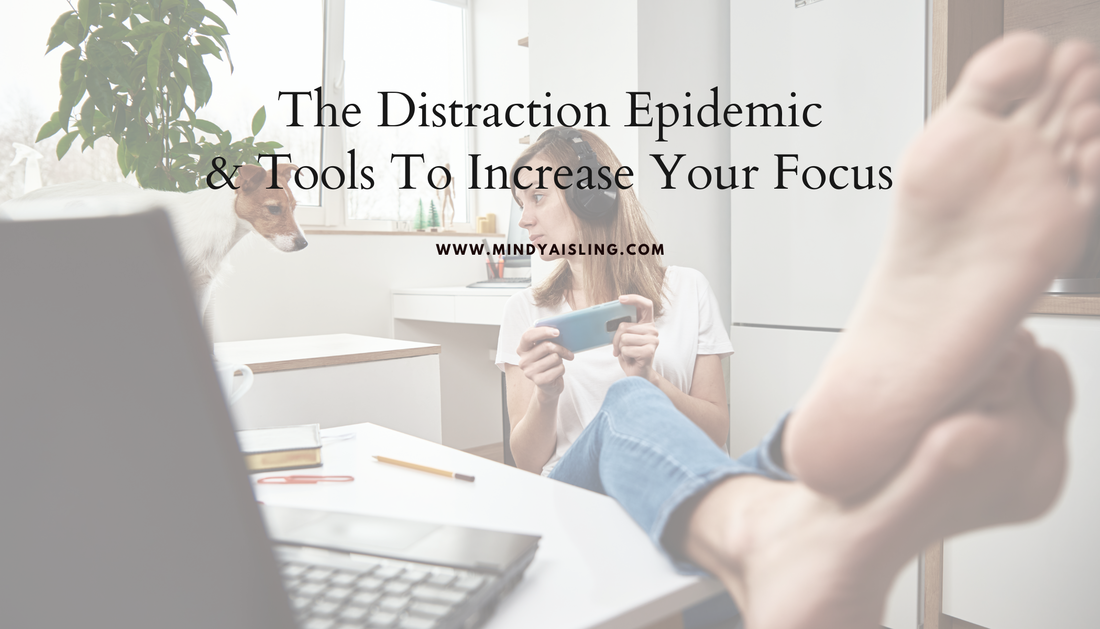
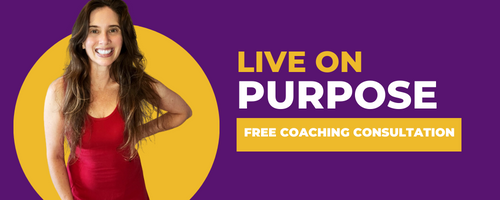
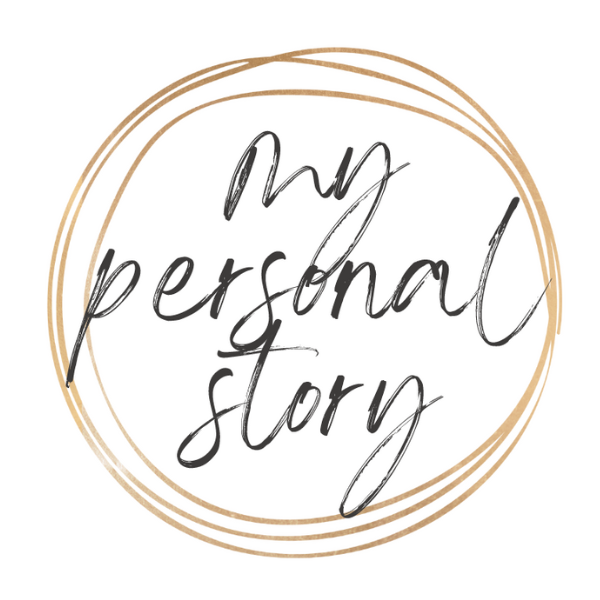
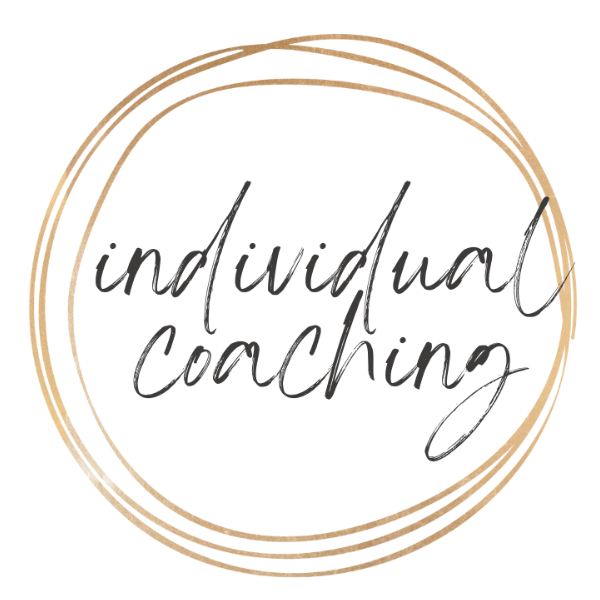
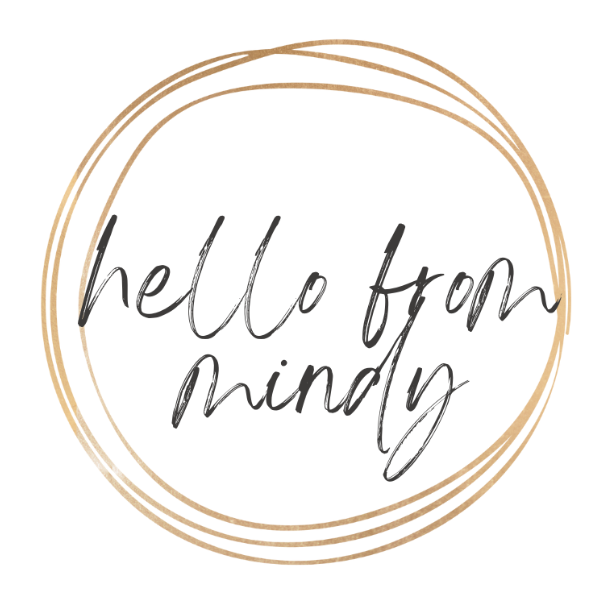
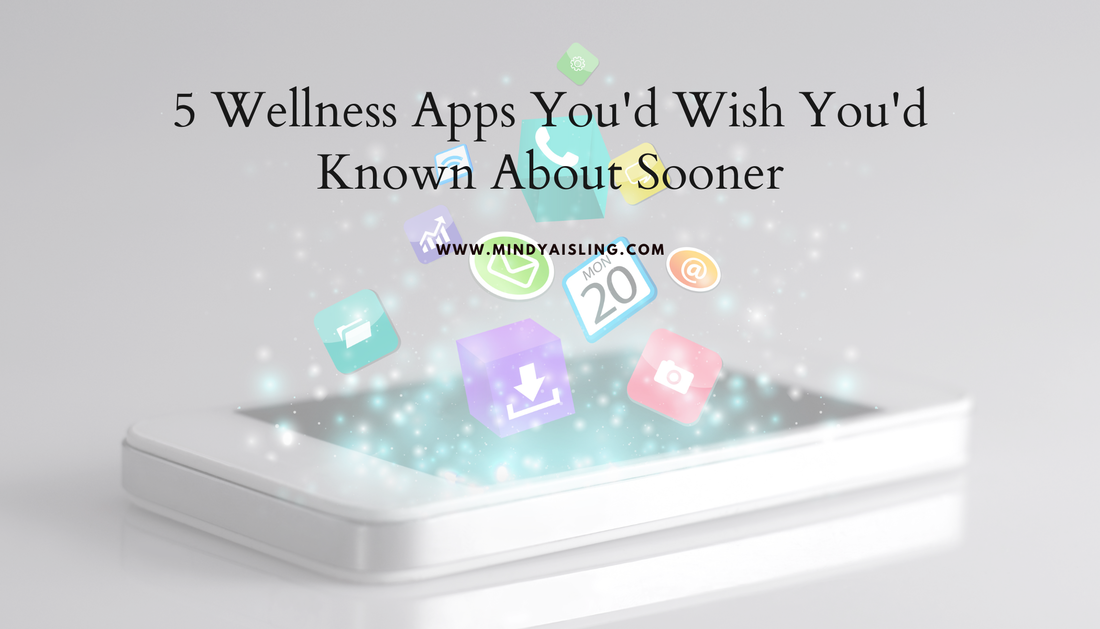
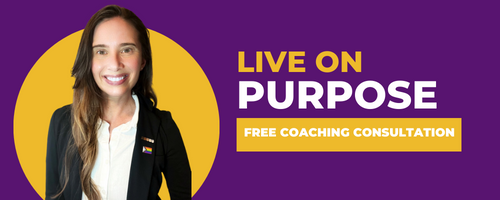
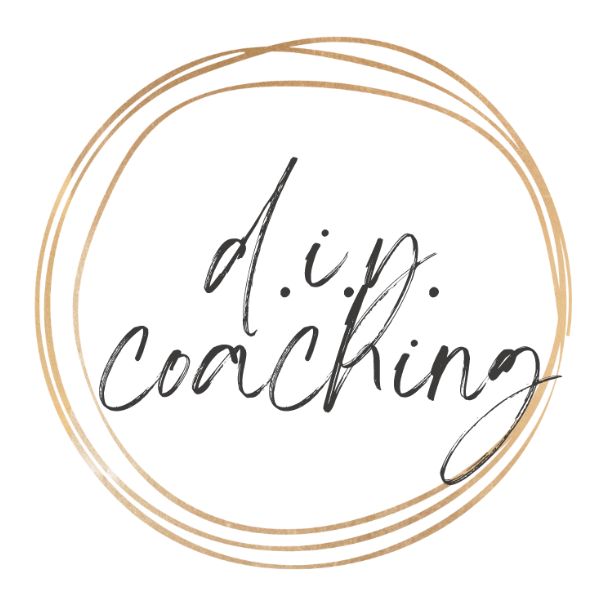
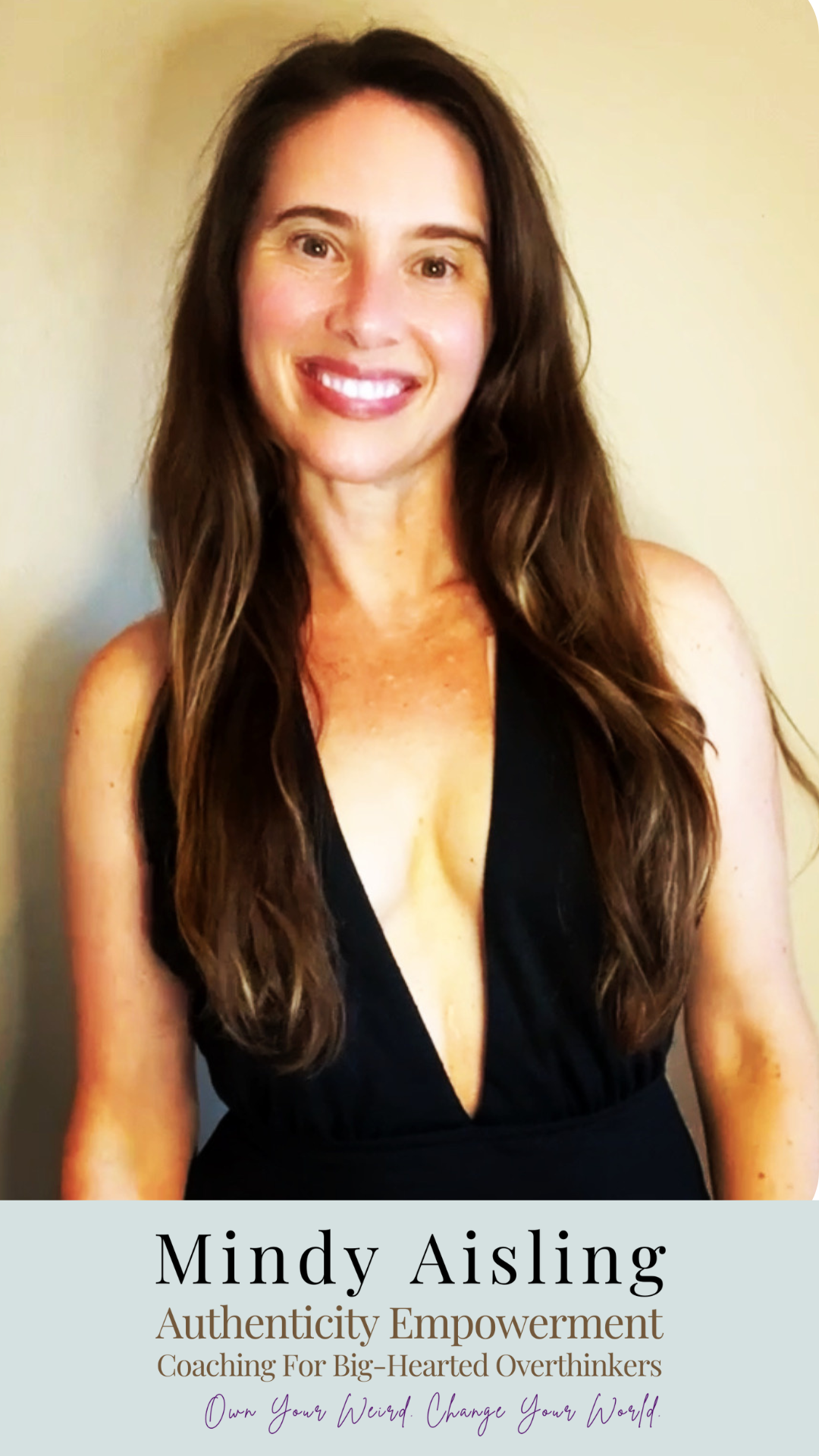
 RSS Feed
RSS Feed
